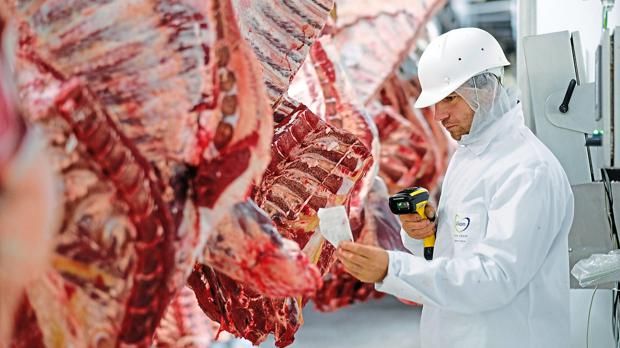
Published in News
Race for Vion’s German Sites Reopens: Tönnies Clears Path for Westfleisch Takeover
Regulatory deadlock ends in Bavaria: Market leader steps aside to let cooperative rival Westfleisch secure critical slaughter infrastructure.

Bo Pedersen
Chief Revenue Officer
The regulatory deadlock paralyzing the sale of Vion’s southern German slaughterhouses has officially broken. In a decisive move, market leader Tönnies (Premium Food Group) has agreed to dissolve its purchase contract, clearing the way for rival cooperative Westfleisch to acquire the critical infrastructure.
The Breakthrough in Bavaria
The months-long standoff over Vion's sites in Buchloe, Crailsheim, and Waldkraiburg ended not in a courtroom, but on a stage in Herrsching. At the "Autumn Dialogue" of the Bavarian Farmers' Association, Clemens Tönnies, managing partner of Germany’s largest meat processor, made a public ultimatum that has reshaped the market landscape.
Facing Westfleisch CEO Wilhelm Uffelmann directly, Tönnies offered to terminate his blocked purchase agreement immediately—on the sole condition that Westfleisch commits to taking over the sites to secure regional processing capacity.
"If you promise here that you will take over the three factories, we will terminate the contract with Vion immediately," Tönnies stated. Uffelmann’s response was affirmative, signaling the cooperative's readiness to step in where the private giant was blocked.
Vion Confirms: The Path is Clear
As of Monday morning, Vion has officially confirmed the strategic pivot. The Dutch-owned group stated it has held constructive talks with Tönnies in recent days to "clear the way" for other interested parties.
"We will carefully assess all serious proposals to determine the best long-term solution," a Vion spokesperson confirmed, effectively acknowledging that the Tönnies deal is dead and the door is open for Westfleisch.
Why This Is a "Game Changer"
1. Regulatory Green Light:
The German Federal Cartel Office (Bundeskartellamt) blocked Tönnies in June due to fears of market dominance in southern Germany. Westfleisch, as a cooperative with a smaller footprint in the south, is unlikely to face the same antitrust hurdles. This swap effectively removes the legal barrier that threatened to close the plants.
2. Cooperative Power:
If Westfleisch concludes the deal, it marks a significant shift in the German meat industry's power dynamics. It would be a rare instance of a cooperative system expanding its reach into a region dominated by private capital, potentially offering farmers a different pricing and ownership model.
3. Regional Relief:
For farmers in Bavaria and Baden-Württemberg, this is the "best-case scenario." The fear of site closures—which would have forced longer transport times and higher costs—has largely dissipated. The infrastructure remains intact, just under a different banner.
What Happens Next?
The "handshake deal" on stage must now be converted into a legal contract. Westfleisch has entered the due diligence phase. Market analysts expect a rapid process, as Vion is eager to finalize its exit from the German beef sector, and Westfleisch is under pressure to deliver on its public promise to the farming community.
Until the ink is dry, Vion continues to operate the sites, but the industry is now operating on the assumption that Westfleisch will be the new owner of the "Big Three" southern sites by early 2026.
Sources:
Fleischwirtschaft: Rennen um Vion ist wieder offen
Proplanta: Tönnies will Kaufvertrag lösen
Vion Food Group: Update on the sale of German Vion locations
